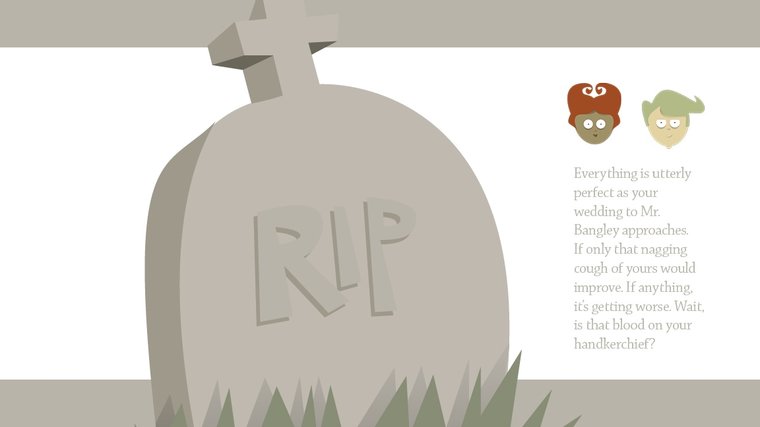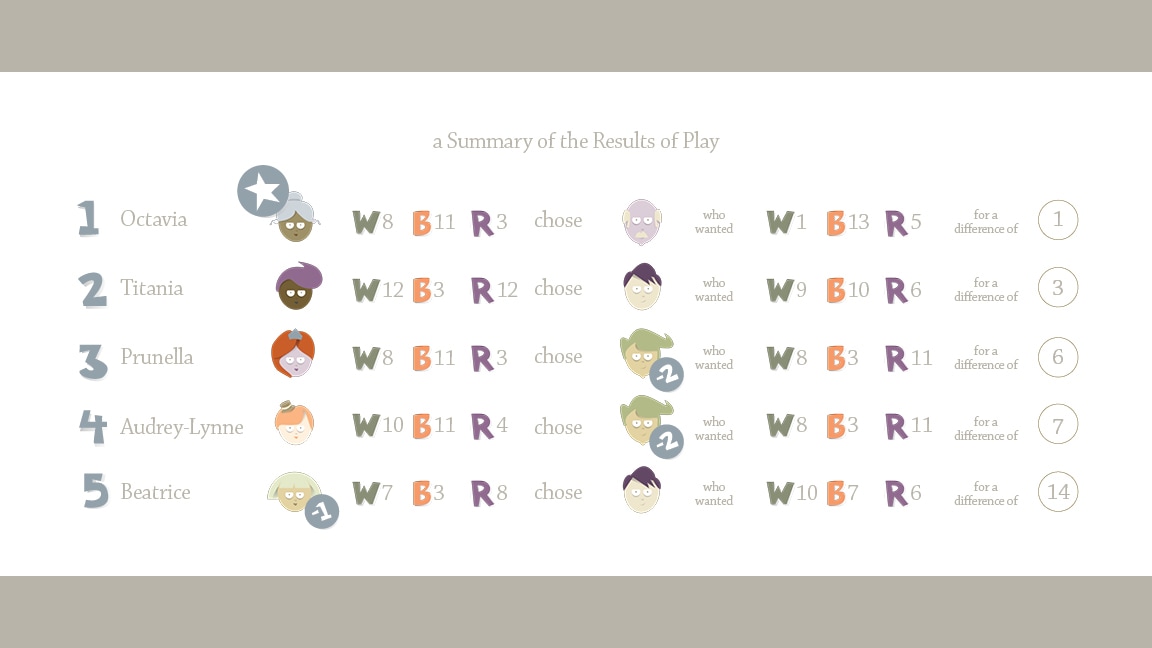|
It’s come to that exciting (and terrifying) moment in the development of “Austen Translation” when we get to give the ending sequence a little love. Endings — in games and in literature — are tricky beasts since they need to check a lot of boxes. They need to feel earned, organic, satisfying to the player or reader, and a bit unexpected. And it’s in the balance between surprise and inevitability that the art of crafting a “good” ending lies. Too much surprise and it feels like it’s a conclusion out of left field. Too much inevitability and players see it coming a mile away and your suspense is shot. Complicating the “Austen” ending problem is our aim to keep the number-crunching that’s going on under the hood, well, under the hood. We made a conscious design choice at the start of the project to downplay the spreadsheet aspects in favor of a more literary, narrative gameplay flow. But without showing players some obvious objective standard the game is using to judge winners and losers, we ran the risk of making the strategy elements feel like window dressing. After a few iterations, we’ve decided to experiment with a hybrid approach which enthusiastically embraces both story and statistic, just not at the same time. At the end of each round, the player gets to see the “story” ending that happens to her heroine. This gives their story journey a sense of completion while maintaining a certain “literary” distance from the math that determined their result. By building out a pool of stock unsuccessful endings to draw from, we can offer players endings which seem fresh and integral to their stories each time they play. Once the player’s individual story has come to a conclusion — either in glorious victory or punishing defeat — the round ends with a statistical table laying out how each of the players did and what each of the bachelors was looking for. An objective document of the round. By placing it at the very end, outside of the narrative flow, we hope to provide players with feedback on their round without breaking their sense of a continuous narrative. Then, armed with some hard, cold facts about why they won, or didn’t, they can plunge back in to tackle new Austenian challenges and woo new Austenian bachelors.
0 Comments
Leave a Reply. |
AUTHORWorthing and Moncrieff, LLC is an independent developer of video game stories founded in 2015. ARCHIVES
December 2022
|


 RSS Feed
RSS Feed
